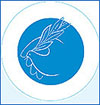 |
|
 |
 |
|
|
Crocodile Dundee

|
Kundhavi
Devi's work with reptiles isn't exactly what one would call a regular 9-5
job...
My designation:
Educational officer at the MCBT (Madras Crocodile Bank Trust), involved with
wildlife and ecological
conservation.
Age:
29
years.
What's my job:
My job
involves activity- based environment education. When school children visit the
crocodile bank, I show them around and educate them on the birds and reptiles
here - it could be tickling the soft scaly belly of a baby crocodile, stroking a
female iguana, holding a sea turtle, or watching the venom extraction from a
Cobra.
The modus operandi:
We have a target group of 19 to 20 villages around the crocodile bank and we
teach children about the importance of wildlife conservation and instil a sense
of awareness amongst them. We explain how important and useful reptiles are to
the eco system and banish the many myths and superstitions associated with
reptiles.
We also take the children on bird-watching trips, plant
trees and talk about the ill effects of plastic littering.
During
the Oliver Ridley season when sea turtles nest and hatchlings appear, we have
mobile exhibitions that stretch down to the coastal villages from the MCBT area
and involve the coastal villagers and their children to help the baby Ridley sea
turtles survive their early days.
The stepping stones:
I have
never been scared of reptiles. I read an article in the newspaper about a forum
for nature lovers being organised in Chennai called 'Nature Quest' and it
mentioned that the Crocodile Bank near Chennai needed volunteers. So, I wrote to
the director of the MCBT, Harry Andrews, and expressed my desire to work on
Sundays in any way that would be useful to them. He asked me to send my resume
and drop in to see him the next time I was there. When I first came here as a
volunteer, I read up as much as I could about crocodiles. observed reptiles and
was taught how to handle the baby crocs and the iguanas. I took visitors around
and while explaining things to them, I learned more on the
job.
So You Want To Be A Wildlife
Conservationist
Be willing to work with your hands and be fearless
about slithery things. The physical rigours of managing a full-grown, live and
snapping crocodile can be strenuous and daring.
Expect not to make any
money for a while! This means you'll need an alternate source of income, or you
will need to work at something lucrative and do the wildlife work
part-time.
Be active and enthusiastic. You shouldn't want to do this type
of work in theory and end up being a couch potato on the field or a shrinking
violet who can't tolerate work in the blazing sun.
Every state, city or
region has a conservation centre or an environmental group of some kind.
It could even be the local zoo. You could begin by helping out there. And yes!
That involves cleaning out the elephant 'poo' and all kinds of other 'goo' from
these enclosures.
It really helps to have a degree in herpetology, ecology,
zoology and so forth. The animal world is vast and diverse and one can never
know enough and everything about it.
Kundhavi Devi spoke to Meenakshi
Doctor
|
|
 |
|
|
|
| Don't wait for evolution. Get |
 |
with
|
 |
 COMMENTS ON THIS ARTICLE COMMENTS ON THIS ARTICLE |
 |
 No comment has been posted for this article yet. No comment has been posted for this article yet.
|
|
|
|
|
 |
|
|
|
Ponds Femina
Miss India 2005
|
|
Indiatimes
Women
|
 Mahavir-Mahatma
Awards
Oneness
Forum launched How to
join |
|
|
|
Indiatimes
Modelwatch  a aClick to view
more  |
|
|



